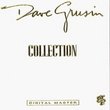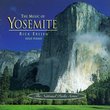| All Artists: Berwald Title: Septet & Serenade & Piano Quartet Members Wishing: 0 Total Copies: 0 Label: Naxos Release Date: 10/5/2000 Genres: Pop, Classical Styles: Vocal Pop, Opera & Classical Vocal, Chamber Music, Historical Periods, Classical (c.1770-1830) Number of Discs: 1 SwapaCD Credits: 1 UPC: 730099471428 |
Search - Berwald :: Septet & Serenade & Piano Quartet
 | Berwald Septet & Serenade & Piano Quartet Genres: Pop, Classical
|
Larger Image |
CD DetailsSimilar CDs
Similarly Requested CDs
|
CD ReviewsUninspiring music poorly played Jeffrey A. Howard | Haifa, Israel | 04/14/2001 (2 out of 5 stars) "I enjoy exploring the lesser known paths of classical music, and I feel that diving into the Naxos catalogue is about the best way to do so. The 'low risk' price encourages one to be more adventurous in trying unheard of works. I have found more than a few gems from this lable.The works on this recordinging are of fairly mediocre quality, though they are somewhat interesting and unusual. The tonalities are straightforward, the form less so. I could see a dedicated chamber group really getting into these pieces and bringing out the tunes in a way that would make hearing them enjoyable. Unfortunately, that's not what happens here.The ensemble plays like so many individuals who just happen to be in the same room at the same time. Perhaps this is related to the fact that none of them sound the least bit interested in the task at hand. The playing is truly uninspiring in the extreme. The clarinettist, however, goes even further by rendering several passages very out of tune. He sounds like a so-so college student - maybe not even a music major.Strangley, on the second listening the pieces grew on me just a bit, making me wonder what a quality rendition would be like. Credit goes to Naxos for continuing its tradition of exploration. There are, however, unavoidable bumps along such a path, and this CD is a mighty big bump." Some Charming Early Music from Sweden's Finest Composer M. C. Passarella | Lawrenceville, GA | 03/30/2006 (4 out of 5 stars) "Franz Berwald's fame rests chiefly on the remarkable series of symphonies and tone poems he penned in the 1840s. But for the uninitiated, there is much more Berwald that's worth knowing, including chamber music that often frustratingly mixes the old-fashioned and the progressive. That's the later stuff. The music on the present disc, however, is all from the eighteen-teens and -twenties and represents Berwald as a contented composer of Biedermeier confections long on charm and short on more ambitious motives. Like Hummel, Spohr, Kalkbrenner, and others from this period, he seems indifferent to or unaware of what Beethoven was doing in his late chamber music. Exhibit A: the Septet, written, as so many such works were by the likes of the aforementioned Hummel and Sporh and others like Conradin Kreutzer, to cash in on the lasting popularity of Beethoven's Septet of 1800. Berwald's is one of the finest such imitations, a real charmer, with a wealth of melody and skillful writing for the instruments, both as individuals and as members of the larger ensemble. The second movement also anticipates one of the innovative hallmarks of his symphonies: it is a slow movement-cum-scherzo, the bouncy little scherzo providing the slow movement's B section, so to speak.
The Serenade, too--which the notes to this CD remark are in the manner of an opera buffa aria--is attractive, with a long instrumental introduction and interlude; in the latter, the pianist gets to show off a bit, romping over the keyboard in a way that reminds me of the variations movement from Schubert's Trout Quintet. The very lyrical treatment of the tenor voice makes it almost another instrument in the ensemble. This isn't great or necessary music, maybe, but it's well done and quite enjoyable. The Quintet is more anonymous than either of these works but still speaks to the fluency and easy melodic invention that Berwald was always capable of in his music. These performances from Sweden are all in tune with Berwald's tunefulness and naive charm. Tenor Thomas Annmo has just the right light, lilting approach to keep this fragile music from breaking, but pianist Joakim Kallhead and his string- and wind-playing companions manage to inject the right bit of fire into their playing when called for. Very nice. Naxos's recording from Gothenburg is resonant but not unduly so, with the voice set in a very natural perspective, and has good stereo imaging. This is a nice job too." |

 Track Listings (7) - Disc #1
Track Listings (7) - Disc #1












